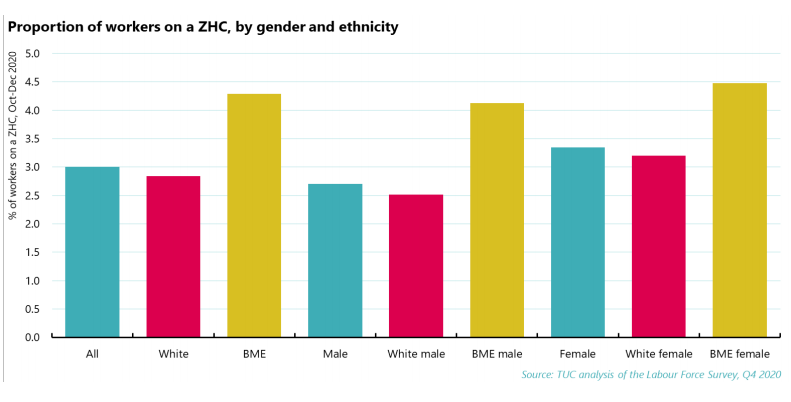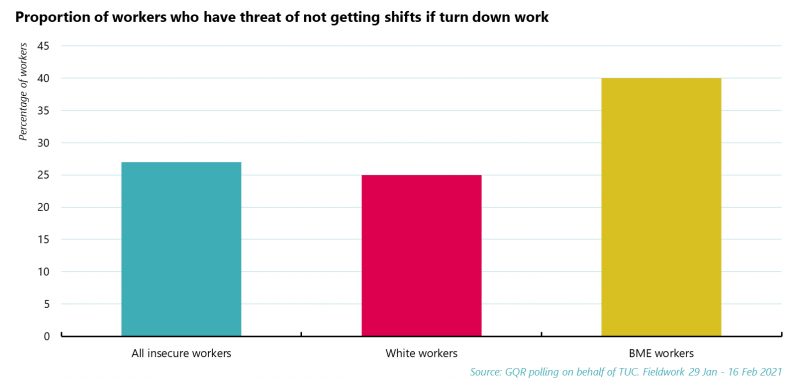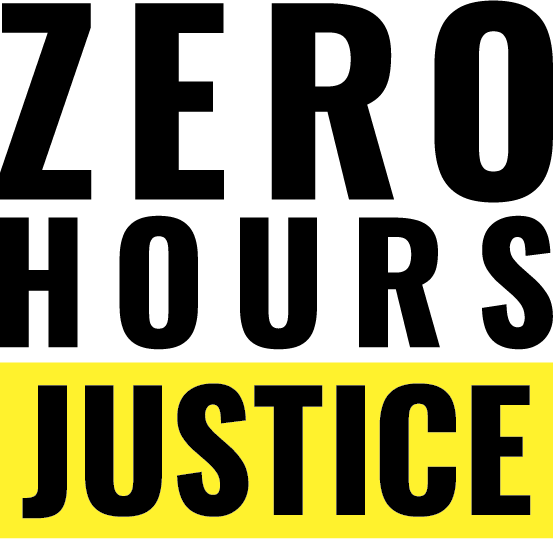|
By Pravin Jeyaraj Zero hour contracts have always bee a source of job insecurity, with hours that are not guaranteed and that can be cancelled at short notice. But, according to new research from the Trade Union Congress and Race on the Agenda, zero hour workers of BAME origin are more likely to affected by the lack of work, compared to white zero hour workers. The research indicates that the proportion of zero hour workers of BAME origin (around 4.2%) is almost twice as high as the proportion of white zero hours workers (around 2.8%). Amongst male zero hours workers, 4.1% are of BAME origin, compared to 2.5% who are white. Amongst female zero hours workers, 4.5% are of BAME origin, compared to around 3.2% who are white. Supporters of zero hours contracts highlight the flexibility available to both employers and workers, who can choose to fit work around other commitments. Yet, according to a survey of 2,523 workers, including 435 of BAME origin, 50% of BAME workers have been allocated shifts and 45% have had shifts cancelled at less than 24 hours notice. This makes it difficult to plan financially or manage other responsibilities such as childcare. On top of that, 40% of BAME workers on variable-hours or zero hour contracts reported that had been threatened with the loss of shifts if work was turned down, compared to 25% of white workers. Across the board, zero hours workers were likely to be refused a more stable contract when they asked, regardless of ethnicity. However, of those who asked for and given a more stable contract, less than 5% were white and over 10% were of BAME origin. Of those who asked for and were refused a more stable contract, around 10% were white and over 20% were of BAME origin.
By Pravin Jeyaraj The engineering magazine New Civil Engineer have reported that three major public sector organisations have introduced measures to make sure suppliers do not use zero hours contracts or, if absolutely necessary, use them appropriately. The overwhelming reason for the change in supplier procurement policy appears to be one of safety concerns. Academic research has previously highlighted the risk to health of working on a zero hours contract.
By Pravin Jeyaraj
According to Office for National Statistics, between 2000 and 2012, the proportion of people in employment that were on zero hour contracts was less than 1%. In the early part of the millennium, the number of zero hours contracts actually fell, reaching a record low in 2004-2005, before increasing again. Last year, in the middle of a global pandemic, the number of people on zero hours contracts broke through the one million barrier. In the 2019 election, the Conservative Party's pledged to introduce an employment bill that would include the right to a more secure contract for zero hour workers. In an implicit criticism of the government's failure to meet this manifesto commitment, the leaders of the G7 engagement groups wrote in their letter to the prime minister that "this isn't the time for leadership in name only".
|
contactFor press enquiries or permission to reuse content, please contact: Archives
June 2024
CATEGORIES
All
|
|
Company No: 12417909 Registered Office: 38 Coney Street, York, Y01 9ND
|






 RSS Feed
RSS Feed


